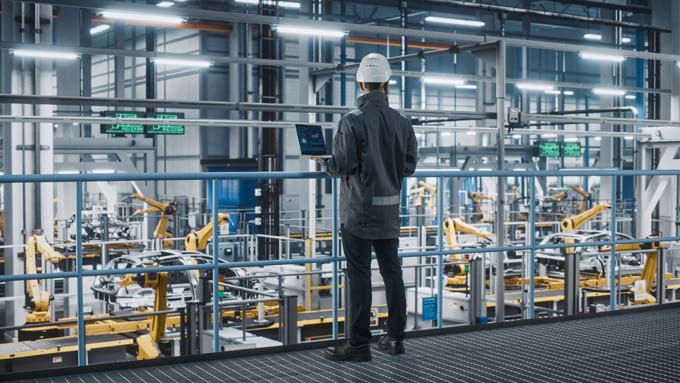Trendreport: "Agile into the golden 20s".
One prerequisite for innovation is agility. Because only with flexible infrastructures and tools, but also processes and hierarchies, can companies remain successful in today's fast-moving times. However, this requires a new corporate culture.

If you want to be agile, you also have to think agile.Whether companies can hold their own against competitors in the new decade depends on the degree of innovation and, above all, on the mindset. While many companies already rely on agile methods such as Scrum and Kanban, a company-wide awareness of agility is often still missing.
This is the conclusion reached by the Future Organization Report 2019conducted by Campana & Schott together with the Institute for Information Systems at the University of St. Gallen. It proves a strong correlation between the degree of agility and the company's performance, but also shows that companies still have a long way to go in the agile transformation. In order for this to succeed, the report presents the most important success factors and biggest obstacles.
The right problem for every solution
On the way to new offerings or markets, medium-sized companies and large corporations first need the right use cases in which modern technologies such as machine learning offer concrete added value. In practice, however, many projects arise from spontaneous ideas. "In principle, it's not a bad thing to start and gain initial experience. But often it is ignored that only limited or not the right resources are available," explains Ingo Meironke.
The consequences: The implementation of a use case fails, comes to nothing or becomes a never-ending story. This article shows how companies can find the right use cases for innovation projects. Post on the basis of various customer examples.
The office from the cloud
How agility and efficiency can be increased in everyday corporate life is shown by CS Smart Workspace. The digital assistance system developed by Campana & Schott and the STEINEL Group uses chatbot systems, Microsoft Teams and mobile web applications to simplify the search for free workstations and premises, while simultaneously reducing operating costs.
CS Smart Workspace forms the interface between employees and the digital workplace from the cloud. The solution is deeply integrated with Microsoft Office 365 and Azure.
The solution can react to events in real time via intelligent IoT sensors in the building. "We have already been using the solution in our Frankfurt office for several months and have further developed it during this time," says Bastian Emondts, Manager at Campana & Schott. "In addition to a significantly higher availability of the meeting rooms, we also benefit from an increased well-being of our employees."
Next Christmas everything will be different
Are you one of those year-end resolutions to do better next year? Then you should take the CEO Blog by Dr. Eric Schott read. In it, he describes what AI-based systems can already do today. For example, they automatically prioritize upcoming tasks according to urgency. They support travel expense accounting, fill out forms in advance, provide an overview of the customer status or a social sentiment analysis.
Whether for translations, the creation of appealing presentations or the presentation of sales trends: Intelligent systems can take care of these tasks independently and automatically. This leaves more time for gifts, menu planning or a spontaneous short holiday.
Outlook: Is digital finally catching on?
In 2018, for the first time, more digital than traditional tools were used at work in German-speaking countries. That this mainly applies to offices, but not to the so-called firstline workers in production or customer service, became clear in 2019.
The fifth edition of the Swiss Social Collaboration Study investigates whether this gap has narrowed in the meantime. In addition, the study focuses on the relevance of the digital workplace for modern & agile forms of collaboration in companies. The study also looks at success factors for change management, the connection of firstline workers and the potential of artificial intelligence for the digital workplace.
Until January 31, 2020, interested parties can still apply at http://www.collaboration-studie.ch/ participate in the survey. The results will be published in April 2020.









